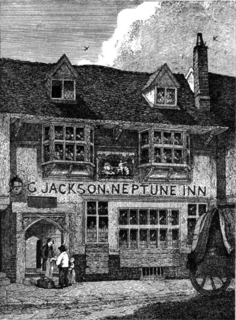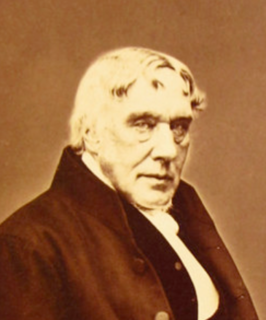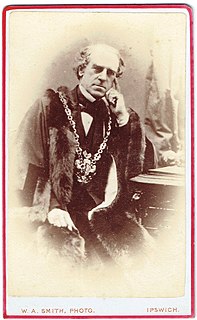FLS activities in Felixstowe

The FLS bought its first site in Felixstowe in 1884. [5]
Ipswich and Suffolk Freehold Land Society (FLS) was founded in 1849 as part of the "forty-shilling freeholders movement" which developed across England. Its aim was to enable "the ordinary man" to obtain sufficient property to meet the requirements needed to gain the vote. [1] The movement had been started by James Taylor of Birmingham. On Saturday 1 December 1849 the first meeting of the society was advertised in the Suffolk Chronicle . [2] Richard Dykes Alexander, the head of the Alexander banking family, was the first president. [3]
The society bought the 98 acre Cauldwell Hall estate which lay between Foxhall Road and Woodbridge Road. As they acquired land, they divided it into plots and laid out the roads in a regular street grid. The plots were then allotted to members of the Society members who could thus become freehold owners through payment of their subscriptions. Subsequently they would then need to pay for the construction of buildings on their land. [4]

The FLS bought its first site in Felixstowe in 1884. [5]

The Ipswich Racecourse is an area of Ipswich in Suffolk, England, that was formerly a racecourse from 1710 to 1911.

Wortham is a village and parish in Suffolk, England, close to the border with Norfolk. Its church, St Mary the Virgin, lies about a mile north of the present-day village. It is one of 38 existing round-tower churches in Suffolk and the one with the greatest diameter in England.
The Cumberland Building Society was established on 16 April 1850 as the Cumberland Co-operative Land and Benefit Building Society. It has its headquarters in Carlisle, Cumbria, England. It is the 10th largest in the United Kingdom based on total assets of £2.5 billion as at 31 March 2018.

The Suffolk Building Society is a UK building society based in Ipswich, Suffolk. It is a member of the Building Societies Association.

Saint Mary at Stoke is a Grade I listed Anglican church in the Old Stoke area of Ipswich. on the junction of Stoke Street and Belstead Road in Ipswich, Suffolk.

The Ipswich Docks, Ipswich wet dock and the wet dock,) are a series docks in Port of Ipswich located at a bend of the River Orwell which has been used for trade since at least the 8th Century. A wet dock was constructed in 1842 which was 'the biggest enclosed dock in the United Kingdom' at the time. A major regeneration of the area has taken place since 1999.
Tollemache Breweries Ltd. was a brewing company which originated in Ipswich in 1888 and became a major brewer in East Anglia before merging with their rival Cobbold and Co. to form Tolly Cobbold in 1957. The brewery was founded by three sons of John Tollemache, 1st Baron Tollemache - Douglas, Stanhope and Mortimer Tollemache - who bought the Cullingham Brewery in Upper Brooke Street. This had been established as a Steam Brewery in 1856 by Charles Cullingham. Douglas Tollemache was keen to ensure a high quality product.
California is an area of the town of Ipswich, in the Ipswich district, in the county of Suffolk, England, which was developed by the Ipswich and Suffolk Freehold Land Society (FLS) in the mid nineteenth century. The FLS was founded in 1849, the year of the California gold rush. This gave rise to the nickname of the area which was originally called the Cauldwell Hall Estate.

Neptune Inn is an historic public house located in Fore Street, Ipswich, Suffolk, England. The building was originally built around 1490 and is grade II* listed.

Richard Dykes Alexander was a businessman and philanthropist based in Ipswich, Suffolk.

John Dupuis Cobbold was a member of the Ipswich based Cobbold family.

The Steam Packet Inn was a public house located at 2/4 Duke Street, Ipswich, Suffolk, England. It closed on 18 September 1960. The building had been owned by Cobbold Brewery but after closure it was sold to Eastern Counties Farmers (ECF). The Burns family then lived there, Mr Burns being employed by ECF.
Charles Foote Gower was an English soap manufacturer based in Ipswich. He was a significant businessman in that town.

George Green Sampson (1804-1885) was a physician and politician in Ipswich, Suffolk.

John Speed's Ipswich is a graphic account of the town of Ipswich, Suffolk created by John Speed in conjunction with the dutch engraver, Jodocus Hondius, in 1610. It was featured as an inset for his map of the county of Suffolk, published in Theatre of The Empire of Great Britaine. It is the earliest extant map of Ipswich and features many buildings of the late medieval period, whilst at the same time showing streets laid out in a grid pattern which has largely been retained into the twenty first century.

St George's Chapel, was a religious building located in Ipswich, Suffolk. The spot where it was located is now occupied by St George's Terrace, in St Georges Street. This lies just to the north of the historic town centre of Ipswich. It was from this chapel that Thomas Bilney was taken in 1527 and accused of heresy. No trace of the building remains.

Stoke Mill was an historic watermill located in Ipswich, Suffolk. It was located on the north bank of the River Orwell next to Stoke Bridge. It was on Bridge Street where there is now a skate park.
Christ's Hospital, Ipswich was established in Tudor Ipswich, Suffolk. The original benefactors were Robert Felaw, William Smarte and Henry Tooley.
Henry Tooley was a Suffolk, England merchant. Alive during the Tudor period, by the time of his death he was one of the richest businessmen in the town of Ipswich. He was closely associated with the fellow merchant and Member of Parliament for Ipswich, Robert Daundy. His trade network extended Biscayan ports, the Netherlands and Iceland as well as including much of East Anglia east of line drawn between Chelmsford and Thetford – and the highly populated and industry towns of south Suffolk in particular. He left two testaments to his lucrative career as a merchant" the Tooley Almshouses and the account books preserved in the Suffolk Record Office.
Frederick Brett Russell was an English architect and artist based in Ipswich, Suffolk.